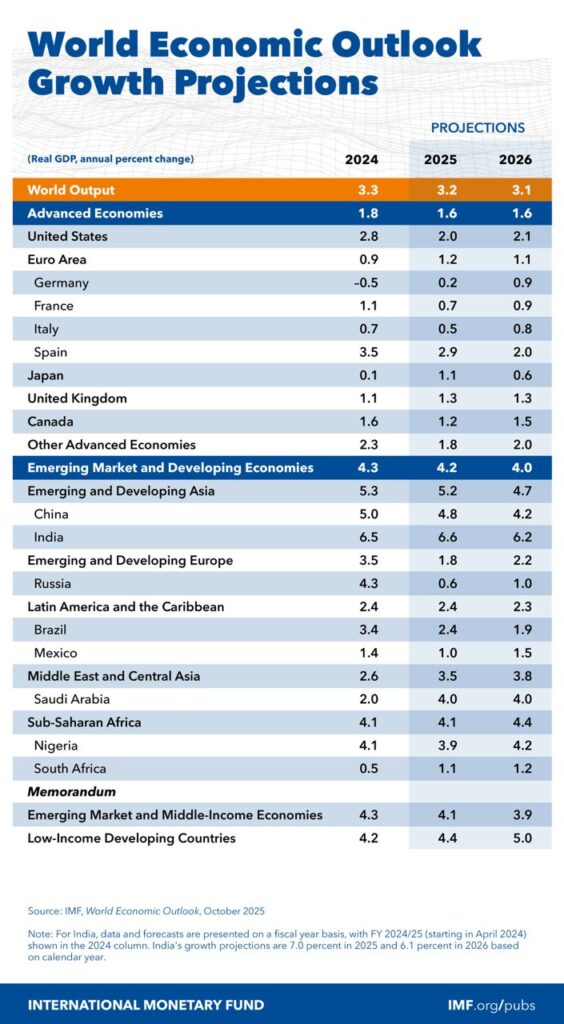In its latest World Economic Outlook reports and the Article IV consultation, the IMF has revised upward Nigeria’s economic growth forecast for 2025 to 3.9%, up from earlier projections of 3.4% in July. The growth rate for 2026 is expected to accelerate further to 4.2%.
In April 2025 the IMF had reduced its forecast for Nigeria to 3.0%, citing lower crude oil prices and global uncertainty. Then, in July, after some reforms and improved outlooks for oil production, financial, and domestic reforms, it upgraded the forecast to 3.4% for 2025 and saw a modest improvement for 2026.
The revision reflects stronger domestic fundamentals. The IMF credits improved investor confidence, higher expected oil production, reforms in the energy and finance sectors, more transparent foreign exchange arrangements, and a fiscal stance that is less contractionary than feared. The rebasing of the national accounts (using 2019 as the base year) has also played a part, capturing previously underreported sectors including informal agriculture, digital economy, and modular refining, which has raised nominal GDP and influenced growth estimates.

Inflation remains a major concern. The IMF projects a decline in average inflation from about 31.4% in 2024 to 23.0% in 2025, then slightly further down in 2026. External balances such as current account surplus are expected to narrow somewhat, because while oil export gains have increased, higher import volumes and other pressures will reduce the surplus.
Despite the upward revisions, Nigeria is not escaping risks. Oil price volatility remains a core risk. The fiscal assumptions depend heavily on stable or rising oil revenues. Any sharp fall in oil prices could hurt government revenue, external reserves and budget projections. Security concerns in oil producing regions may impair production and supply chains. Domestic inflation driven by food and energy costs may also erode purchasing power. 
The IMF has repeatedly urged the Nigerian authorities to maintain credible and consistent fiscal and monetary policies. Tight monetary policy, disciplined fiscal spending, and institutional reforms are necessary to sustain the improved outlook. The improved foreign exchange market arrangements are seen as positive, but more reforms are needed to reduce distortions, improve transparency and attract investment. 
Samuel Aina

